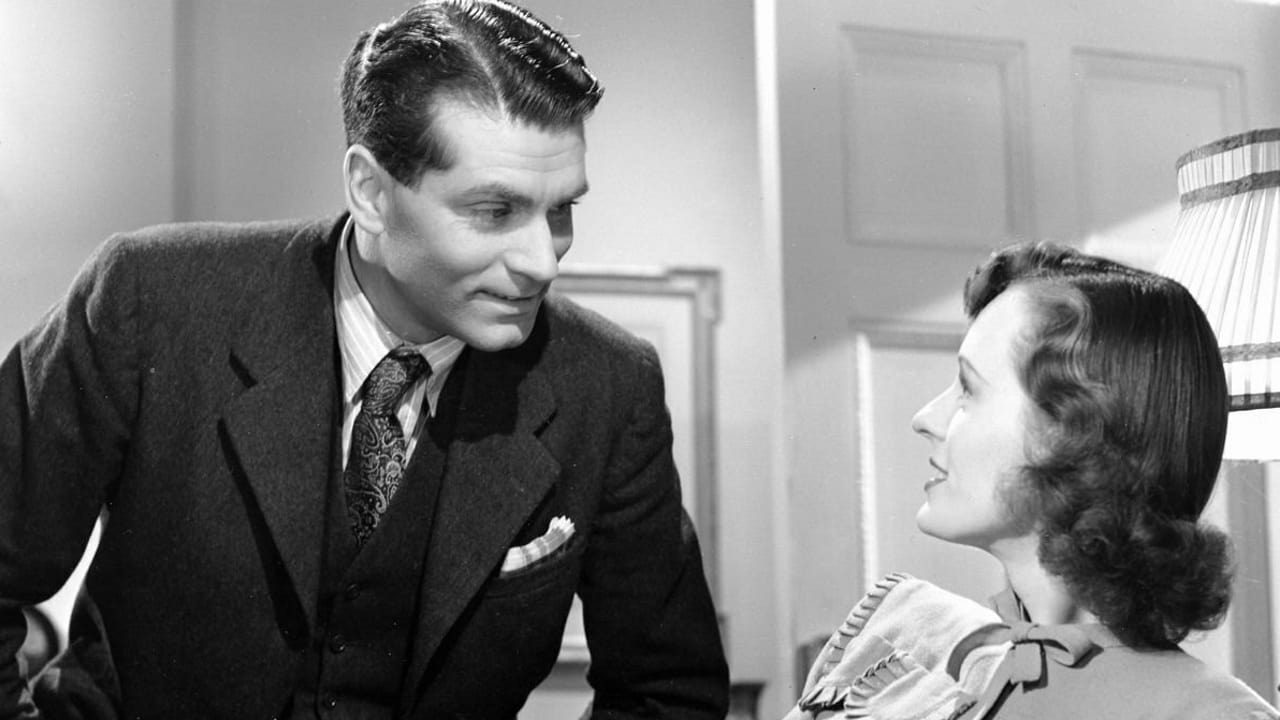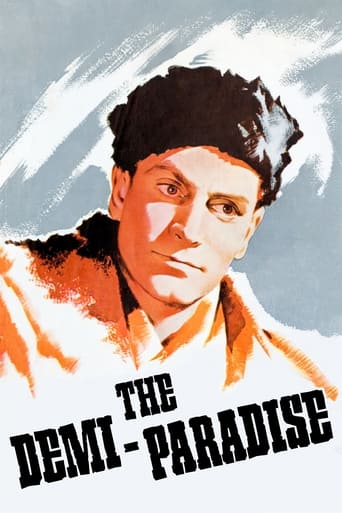



Very very predictable, including the post credit scene !!!
View MoreBest movie of this year hands down!
Waste of time
One of the film's great tricks is that, for a time, you think it will go down a rabbit hole of unrealistic glorification.
View MoreYoung Russian inventor Ivan Kouznetsoff (Sir Lawrence Olivier) brings his new design and prototype for an underwater ice-breaker propeller to pre-war England (1938-39) in hopes of presenting it to world famous engineer and shipbuilder, Mr. Runalow (Felix Aylmer), hopefully for production. He coincidentally meets Mr. Runalow's granddaughter, Ann (Penelope Dudley-Ward), who takes him under her wing and home to the family. Culture shock (in both directions) permeates his every experience and interaction. The development of mutual understanding is the sub-plot, hastened by Hitler's invasion of Russia during Kouznetsoff's second trip to England and its subsequent synergy of combined effort to assist Russia and to complete the ship with the cutting edge propeller.Having worked for 2+ years with émigrés from Russia who lived through WWII and were contemporaries with this film, Olivier's interpretation of Russian sensibility was of great interest to me and he did a very fine job. One of Olivier's best performances, in this writer's opinion. Well written script and dialog. Performances of Felix Aylmer and Penelope Dudley-Ward were quite enjoyable. Felix Aylmer as a wise genius in this film bears notice in contrast to his role as Polonius in Olivier's Hamlet. The film held my undivided attention the entire two hours.Highly recommended for anyone with high interest in inter-cultural relations. Given human nature's propensity for alienating others who display any differences, the making of this film was a stroke of genius. Hopefully it was widely viewed at that time (1943) and provoked reflection. If a picture is worth 1000 words, a moving picture is worth 1000 pictures. Kouznetsoff's speech at the ship's christening and launch is priceless - remarkably apt and inspiring.
View MoreLaurence Olivier is a Russian who comes to the U.K. to work on a propeller in "The Demi-Paradise," a 1943 propaganda film directed by Anthony Asquith. Since the Russians became allies in World War II, much was done in film so that they would be seen in a favorable light. At first, Ivan, the Olivier character, regards everyone with suspicion, having heard all sorts of clichés about the English. But with time, they win him over, helped by the daughter (Penelope Ward) of the man in charge of building the ship that will house the propeller.Olivier's accent is good, but as someone pointed out, the slow way he speaks makes him seem dumb, which, as an engineer, he isn't. On the other hand, it's probably realistic, since it would be a second language.There are a few funny scenes, and the film is infected with a lot of warmth. It's good, but not great.
View MoreThis delightful romantic comedy has a situation similar to "Ninotchka" from several years earlier, but with the genders reversed: Loyal but somewhat naive Soviet apparatchik visits a Western capitalist country on serious business, is squired through the strange ways of his/her host nation by a light-hearted but likable native toward whom he/she develops romantic feelings, and alters his/her views on Soviet/West differences. Garbo and Douglas were incomparable in "Ninotchka," but Olivier, in an offbeat role for him, and Dudley Ward hold their own in this comic exploration of people's preconceived ideas about one another (the Russian assumes all English businessmen are "exploiters," the English boarders at a rooming house won't eat at the table with "one of them (a Russian communist)." Definitely worth seeing.
View MoreGood example of the type of movies made in England during the war, to keep spirits up. The Brits never seem to engage in gung-ho war stuff: which makes for more pleasant viewing.While nowhere near the league of, say, "A Canterbury Tale", The Demi-Paradise has enough realism (of the British character) to while away a pleasant hour and a half.
View More